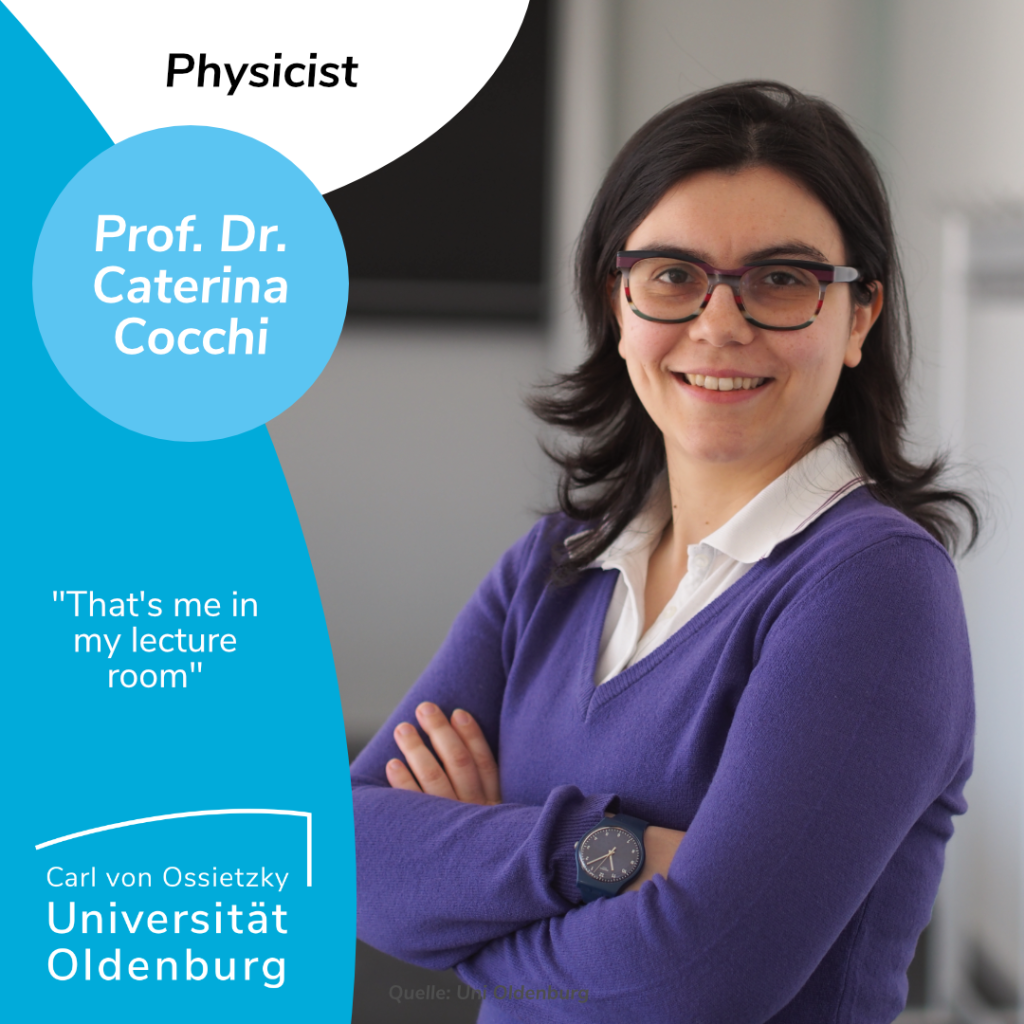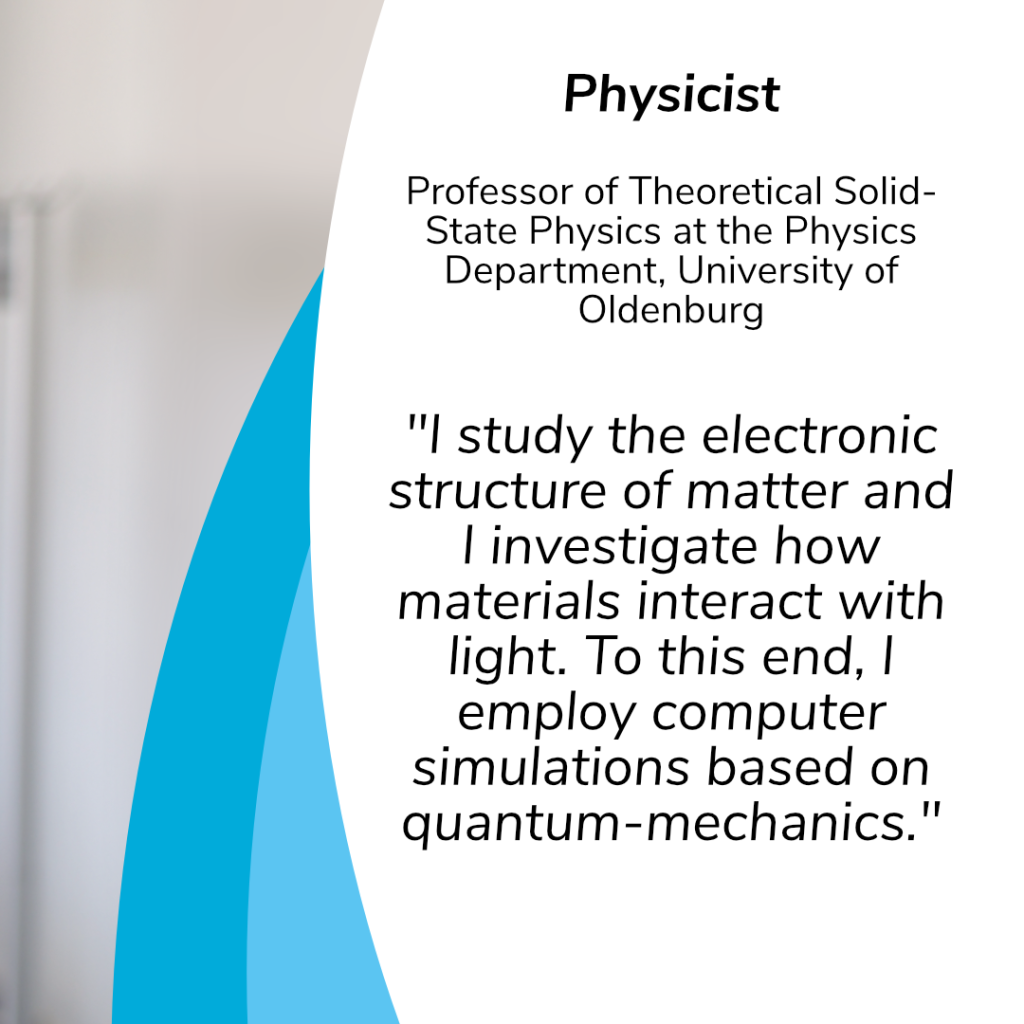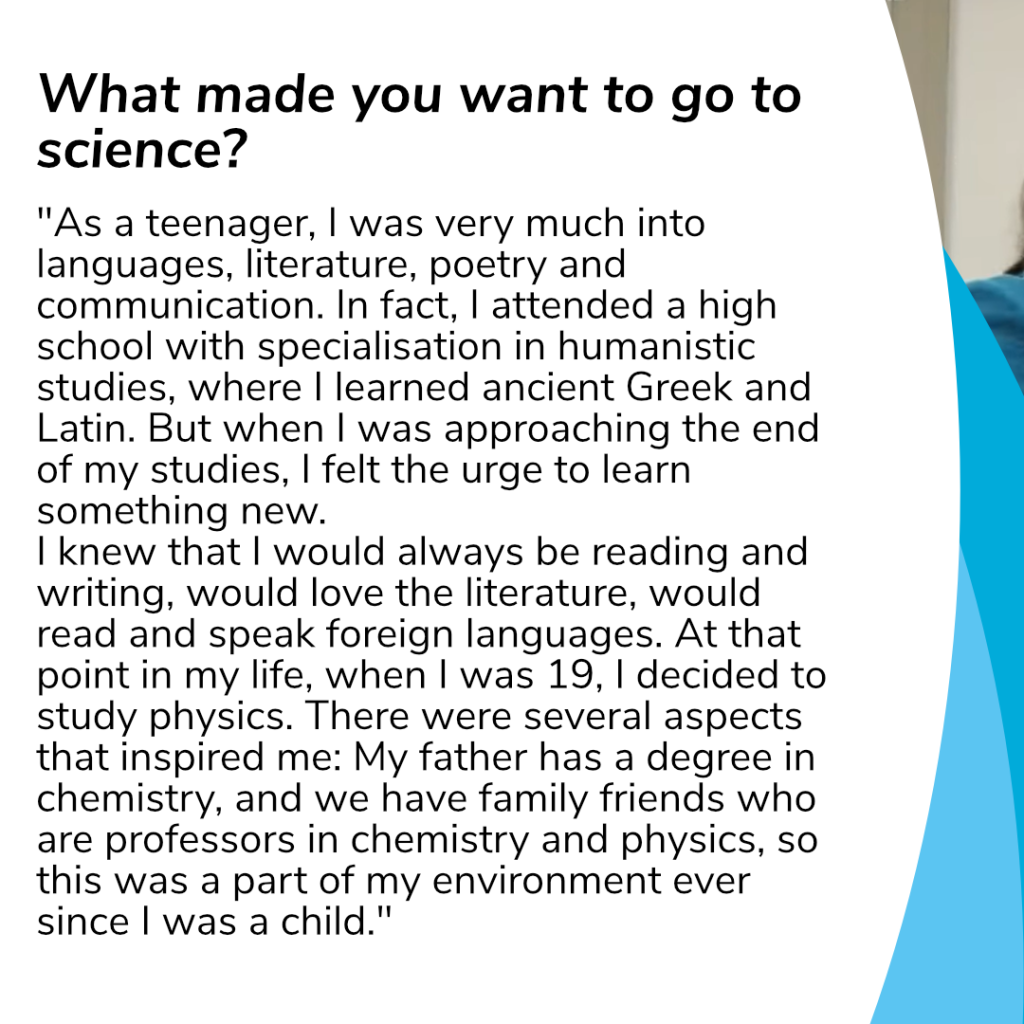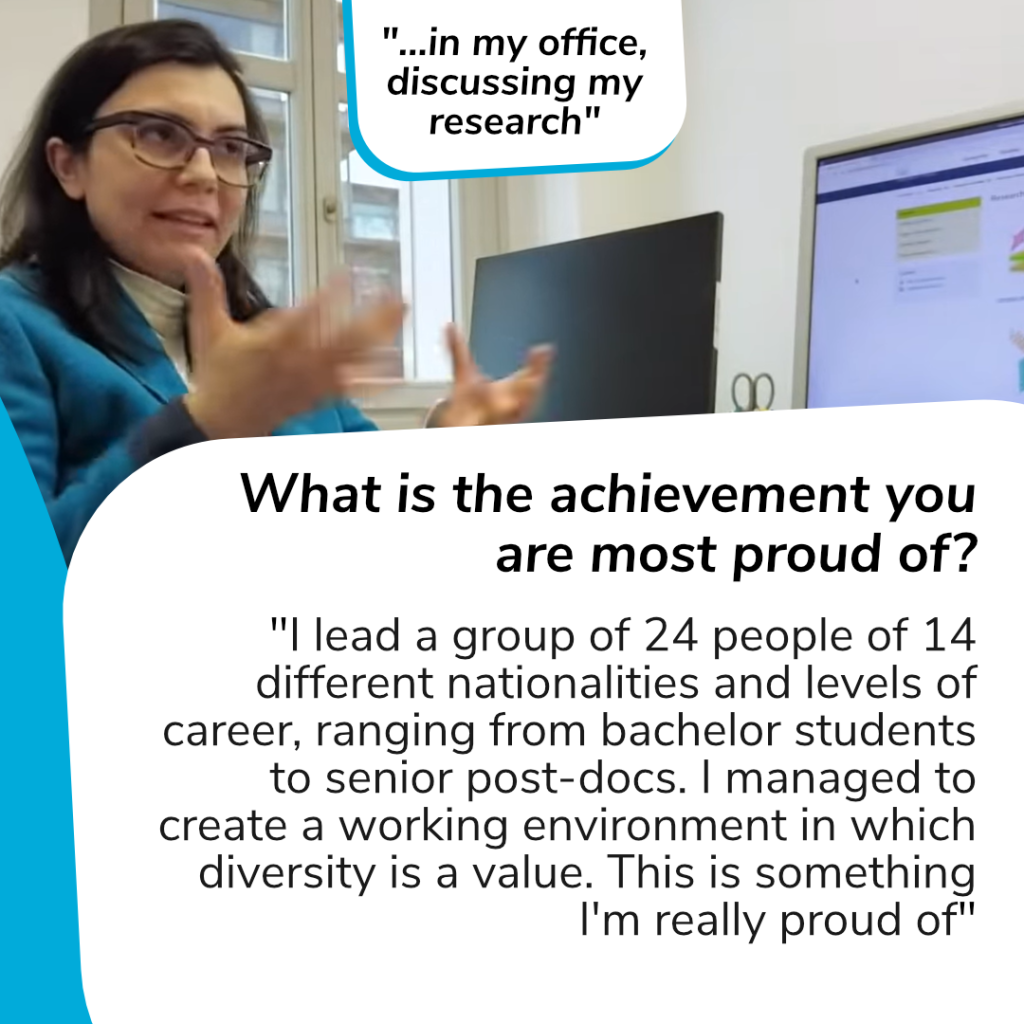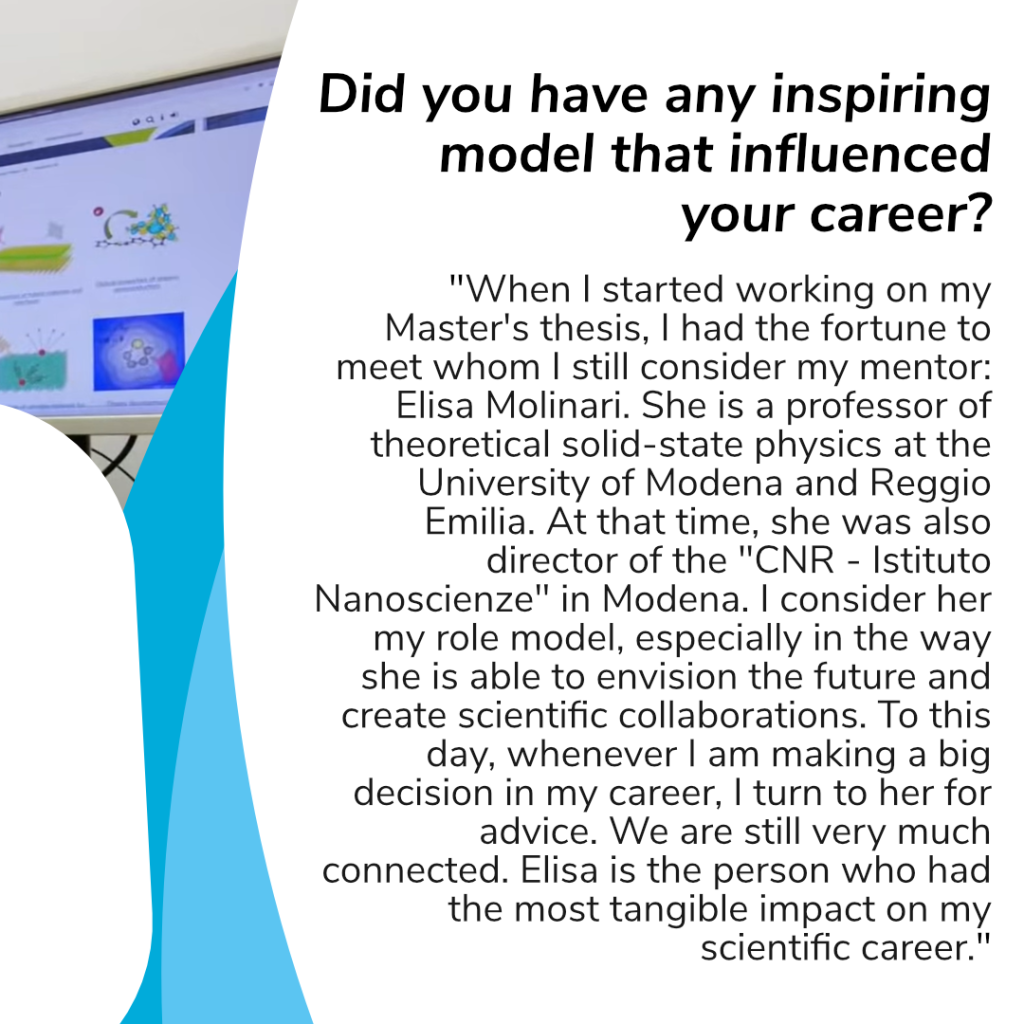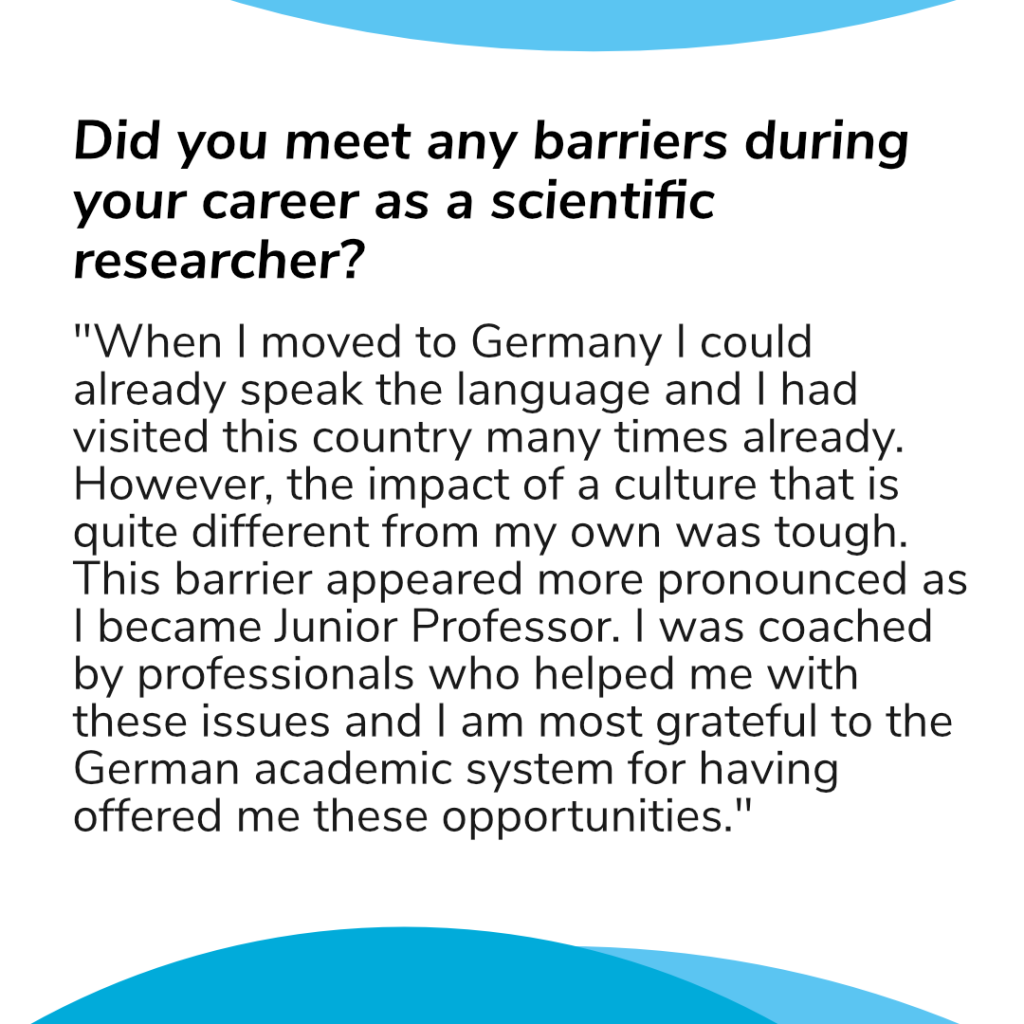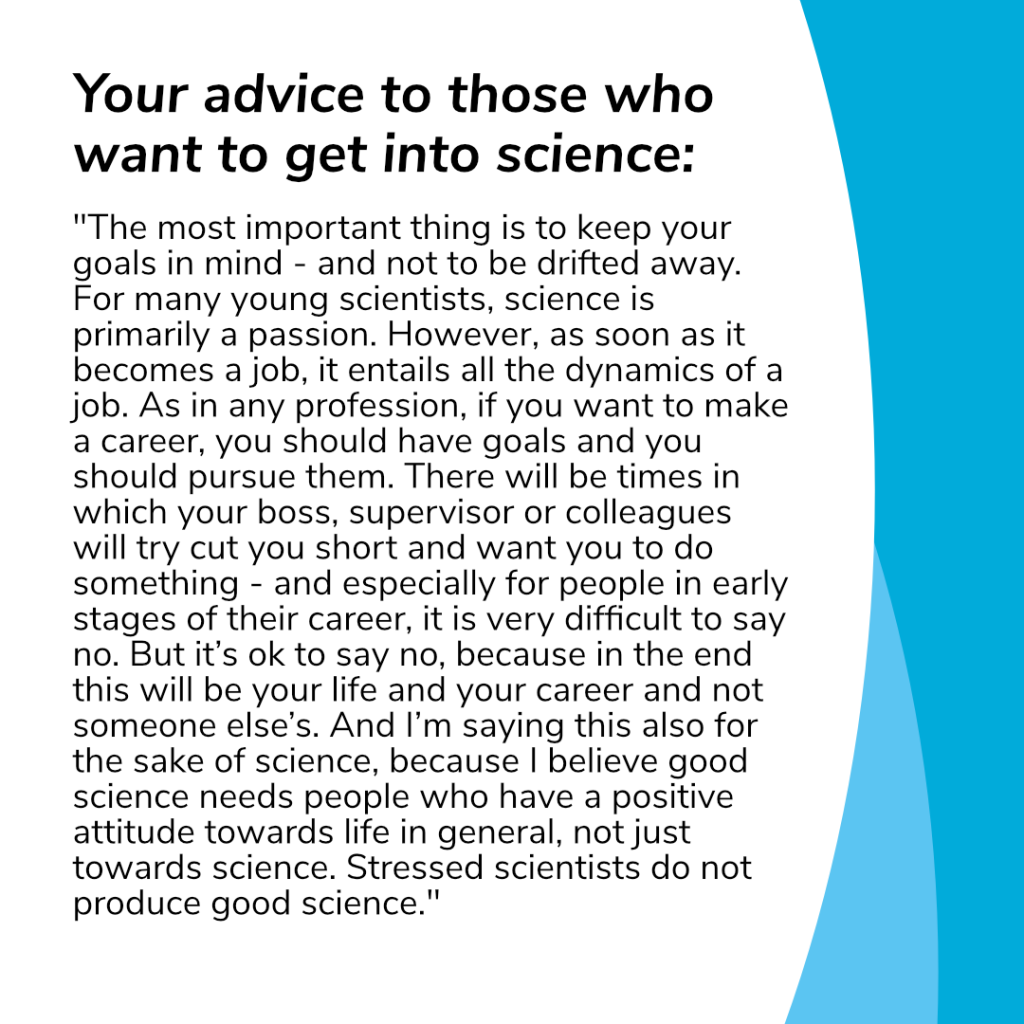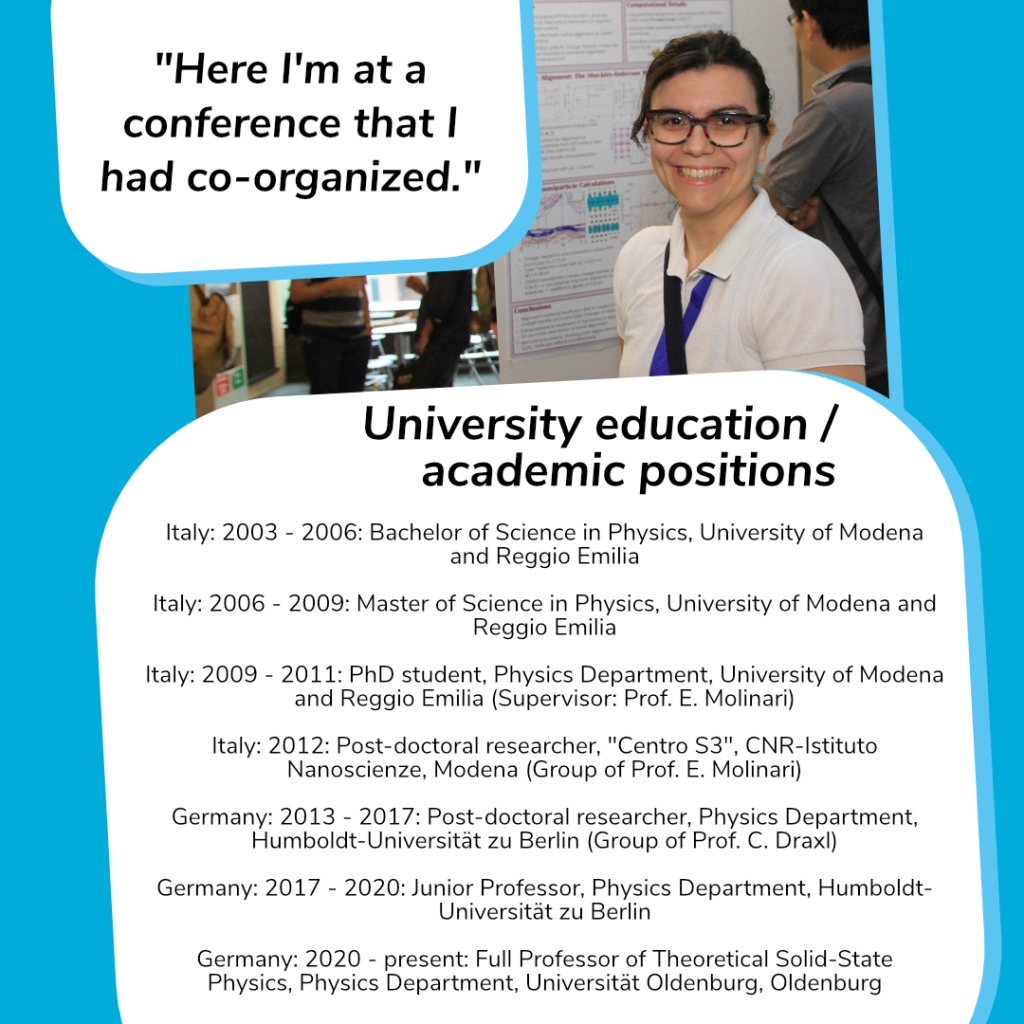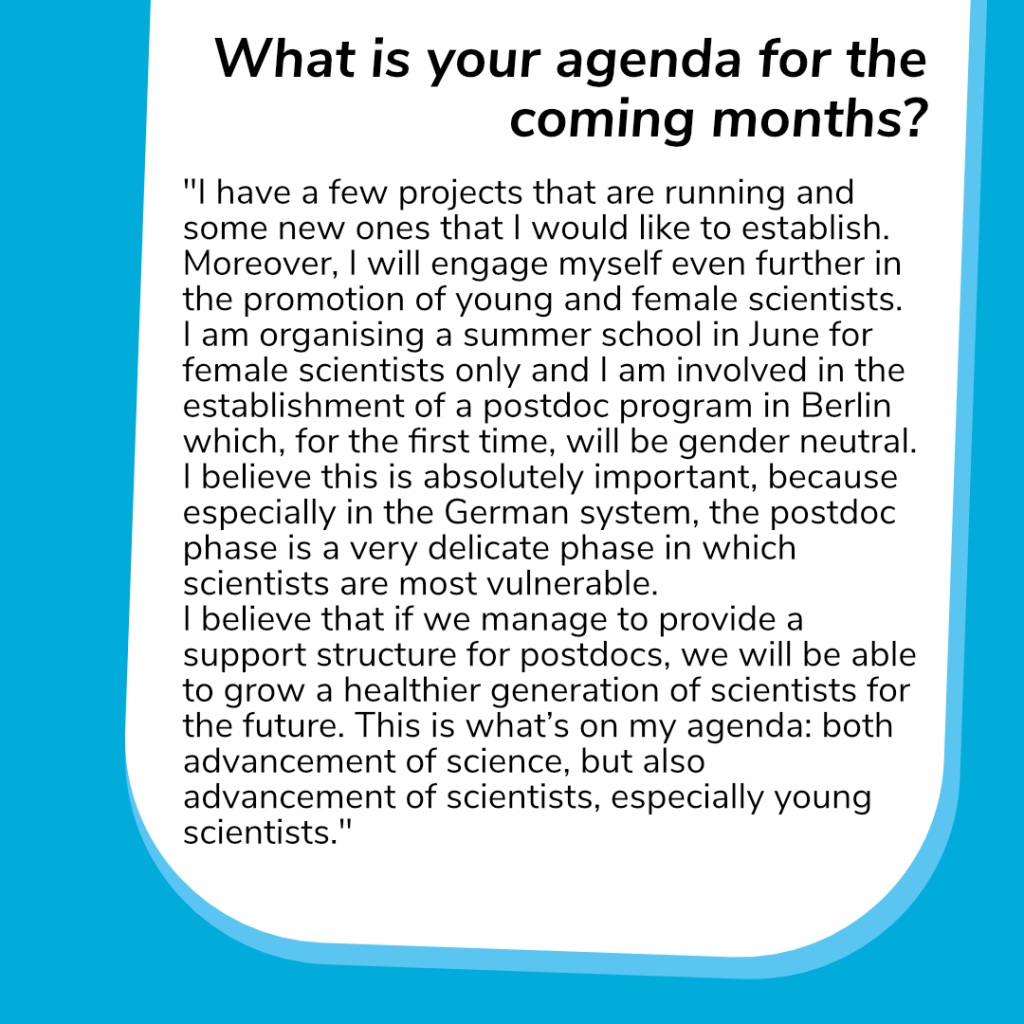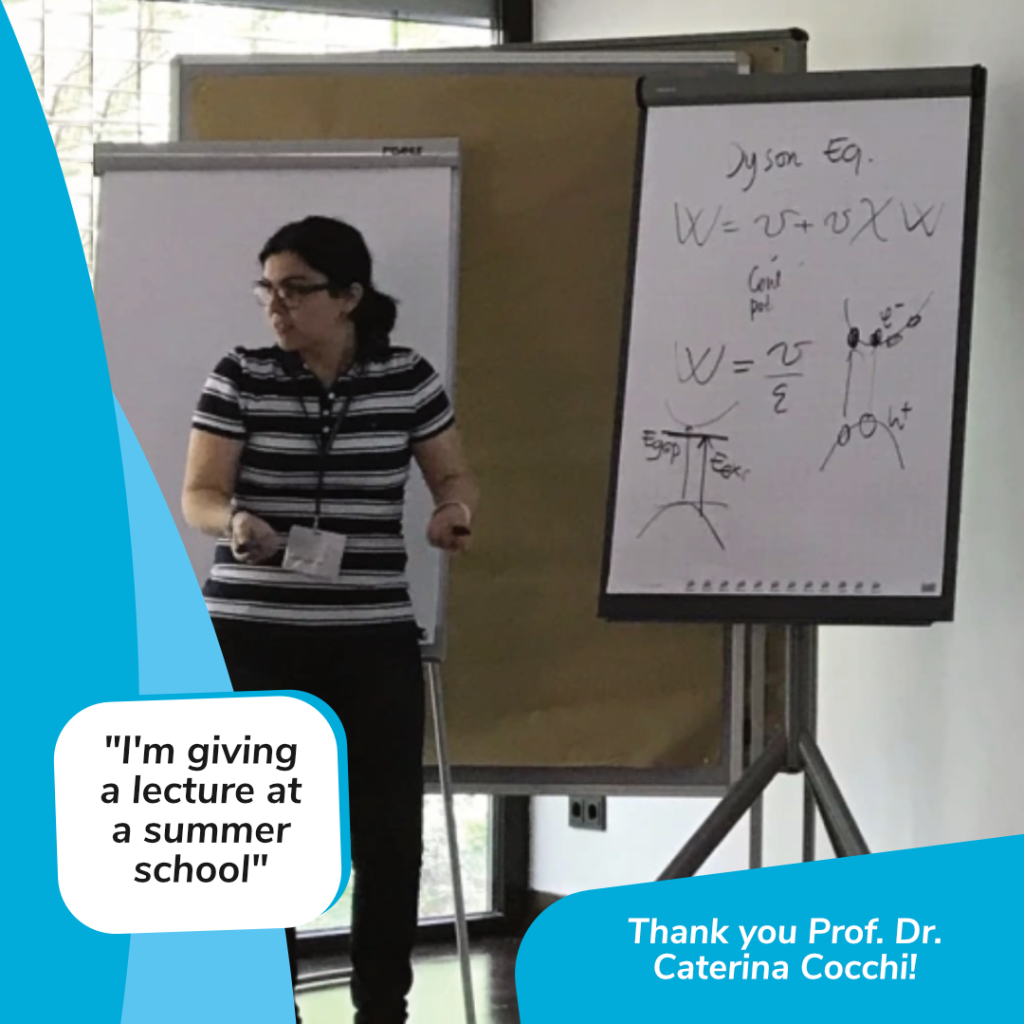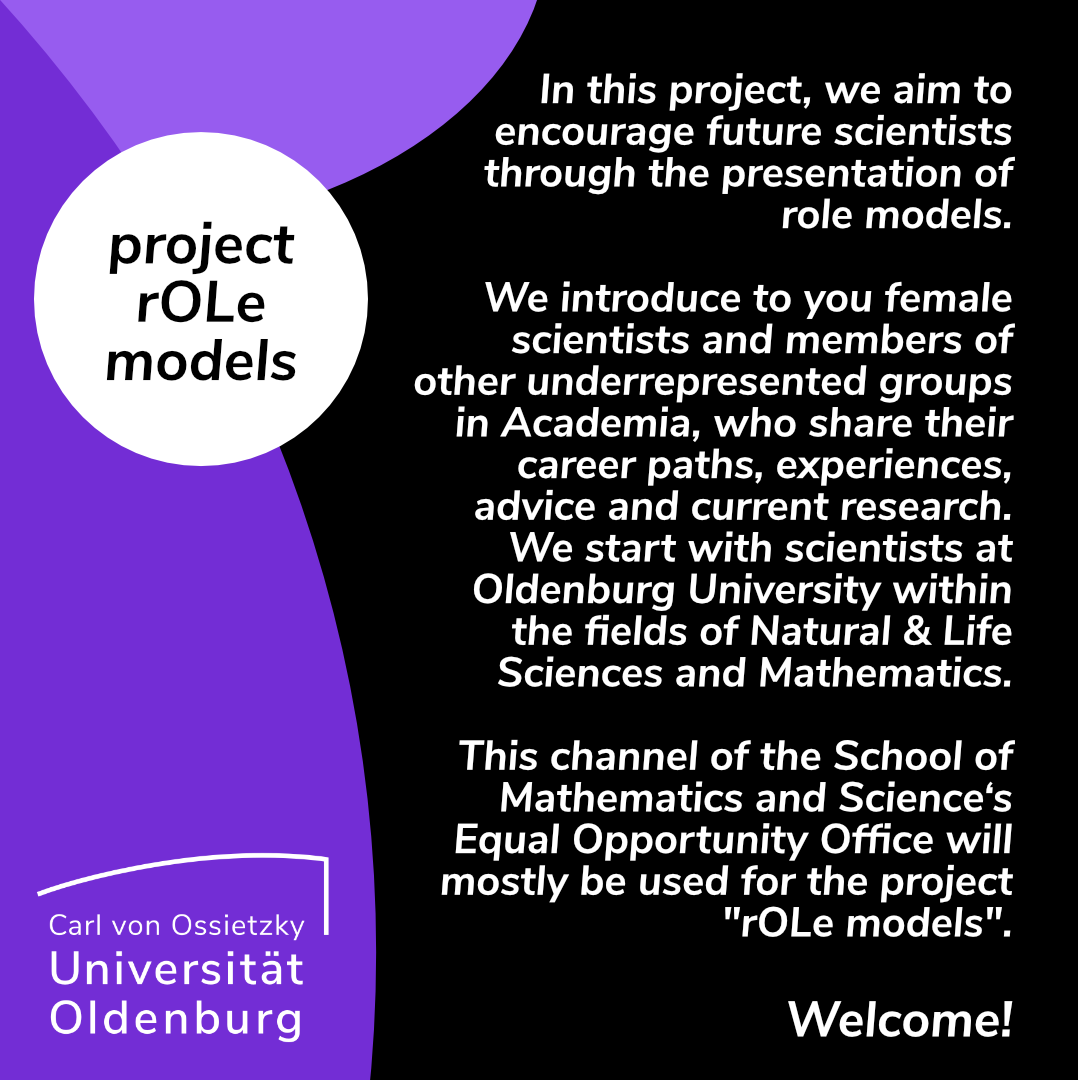We are pleased to introduce to you our latest rOLe model:
Prof. Dr. Caterina Cocchi, Professor of Theoretical Solid-State Physics at the Physics Department, University of Oldenburg.
First published on instagram (@equality_uol) on 24 May 2022.
You can check out the Instagram page @est_uol – there you’ll find updates on research projects, events, and publications of Prof. Dr. Caterina Cocchi and her working group.
